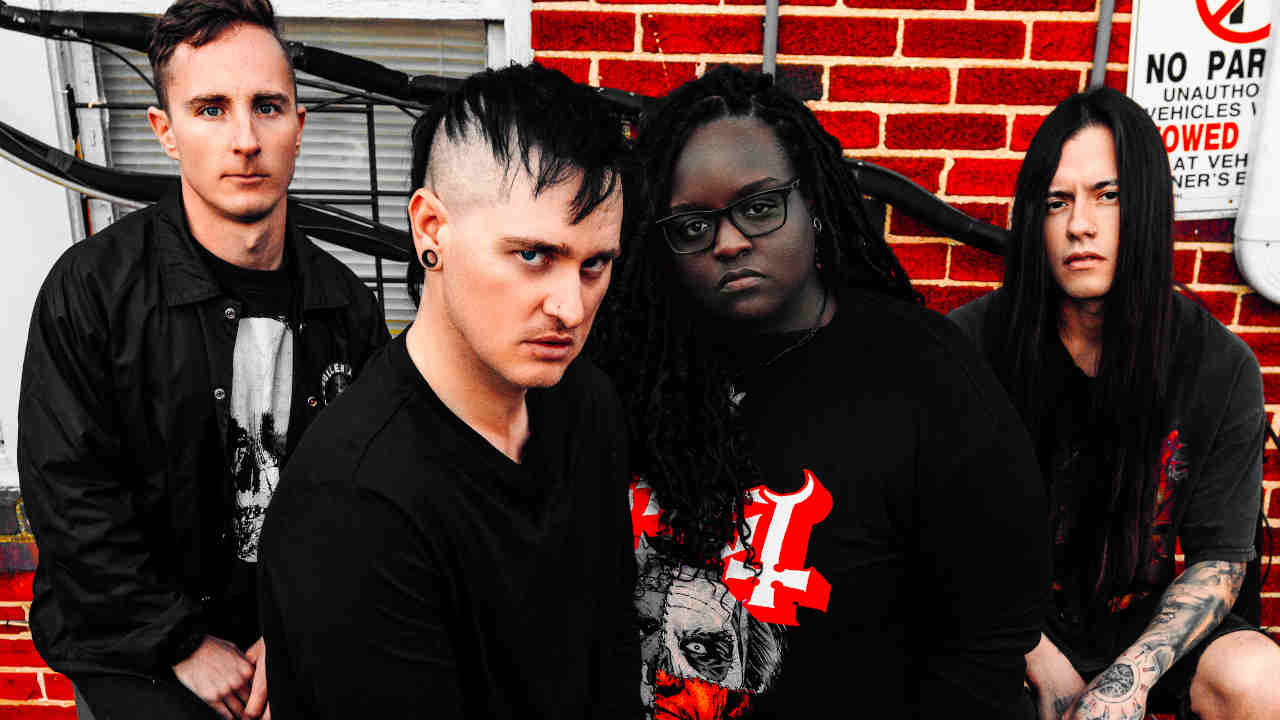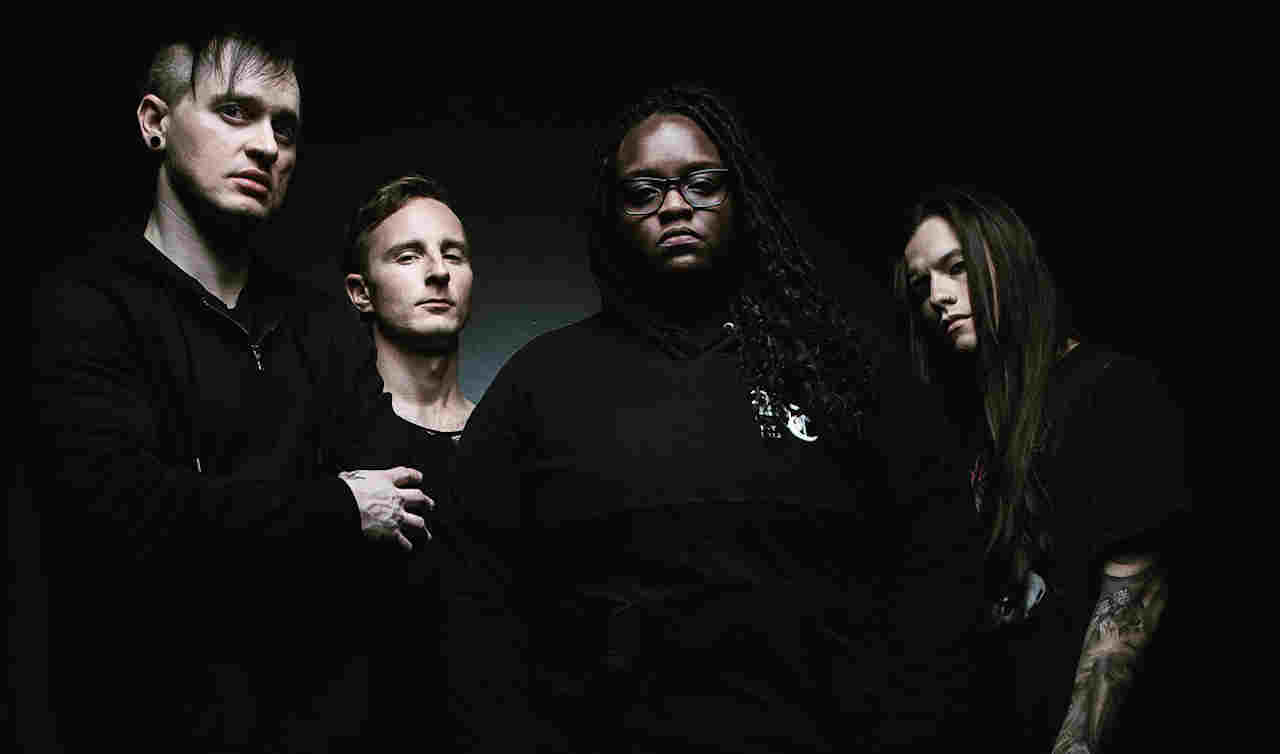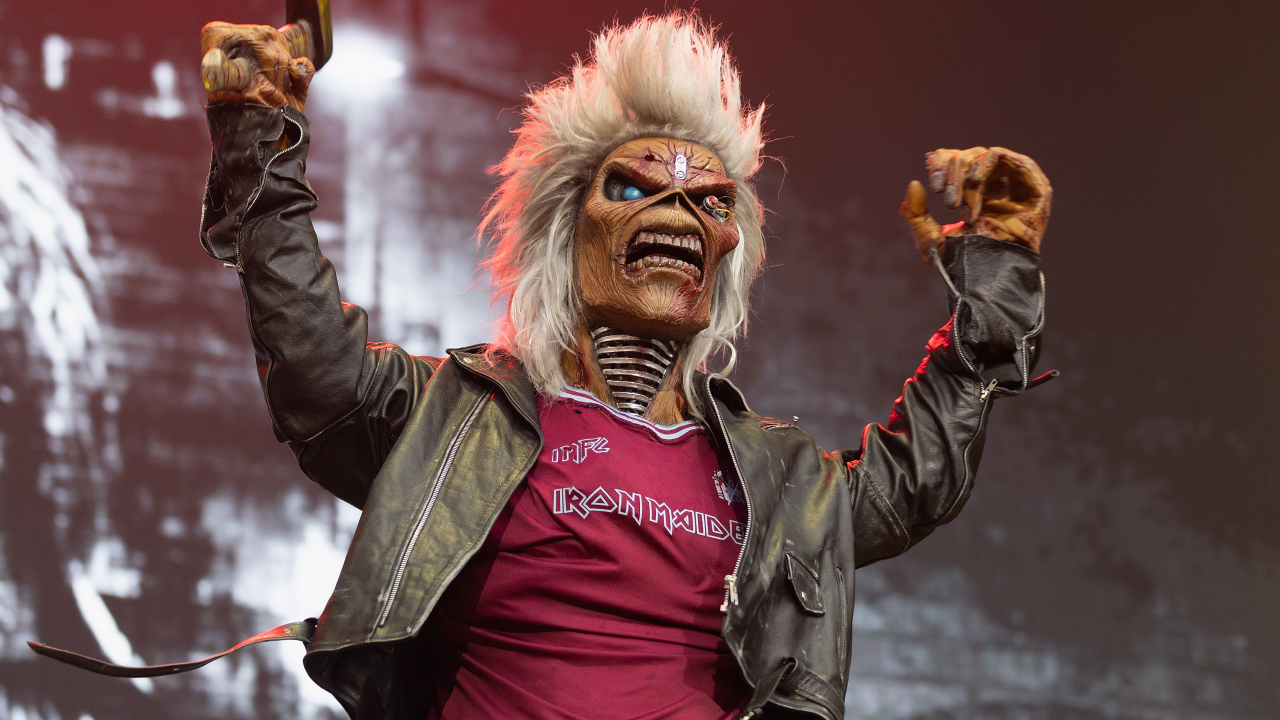“We are riff machines”: how Tetrarch are leading nu metal’s resurrection
Slipknot-approved metallers Tetrarch are reinventing nu metal for the 21st century

Select the newsletters you’d like to receive. Then, add your email to sign up.
You are now subscribed
Your newsletter sign-up was successful
Want to add more newsletters?
“If chain wallets made a comeback, I would be all about it.” Tetrarch vocalist and guitarist Josh Fore is weighing up the benefits of the nu metal revival. His bandmate, lead guitarist and shredder extraordinaire Diamond Rowe, cuts in, equally enthusiastic. “I wear one now!” she says. “So, if anything, I’ll have a hand in that comeback.”
The jury is out on whether the world needs the return of the most ubiquitous alt accessory of the 00s. But as far as the music is concerned, it feels like we’ve been on the cusp of a nu metal renaissance for some time now.
In 2016, Cane Hill took a faltering stab at a revival with their swaggering debut album, Smile – albeit backing away from it by 2019’s Kill The Sun EP. A year later, Ocean Grove’s genre-mashing debut, The Rhapsody Tapes, blended nu metal with grunge, hip hop and alt-rock, and more recent albums such as Vein’s Errorzone (2018), Northlane’s Alien (2019) and I Let It In And It Took Everything by Loathe (2020) have all tapped into the genre’s downtuned aggression and swaggering bounce.
Now, a new crop of bands, including Pennsylvania’s Tallah, London’s Darknet and Tasmania’s Alpha Wolf are moulding their angst into new shapes, but it’s Atlanta’s Tetrarch who are leading the charge. The band’s new album, Unstable, is a fusion of Korn-esque skin-crawling atmospherics, chugging grooves and accessible choruses, topped by lightning-fast, ripping leads. A sound that’s both fresh and nostalgic.
“We didn’t set out to be the resurgence of nu metal,” says Diamond, speaking to us along with Josh, via video call. “But if you ask us, those are some of the best bands of our genre. They were great songwriters and people don’t give them credit as musicians, but there were some great musicians in there, great vocalists, very charismatic entertainers. If people want to call us the leaders of the nu metal resurgence, I hope we don’t let them down…”

Diamond and Josh formed Tetrarch in 2007, when they were still at school – they came up with the band name, which refers to the ruler of a divided kingdom, in a history lesson. As the only two people in the seventh grade who were into metal and played instruments, their friendship quickly blossomed over a shared love for Metallica. “When we started, we were a straight-up thrash band,” remembers Josh. “We just wanted to play as fast as possible and rewrite Kill ’Em All.”
Their debut EP, 2008’s Pravda, was an attempt to do just that, but by the late 2000s the band had evolved, drinking in the influence of nu metal and the metalcore bands who usurped their throne.
Sign up below to get the latest from Metal Hammer, plus exclusive special offers, direct to your inbox!
Last year, Diamond was listed as one of Hammer’s one-to-watch guitarists and is the first female African-American metal guitarist to get major press coverage in the US, a title she says she’s slowly come to recognise the importance of. “When I was young I was like, ‘I don’t know what you’re talking about, I just want to be like Kirk Hammett’,” she laughs. “But as we’ve grown older, I get hundreds of messages from people saying, ‘I didn’t know there was anyone in the mainstream who looks like me.’ Seeing me up [onstage] has helped get people into the band or the genre who might not have considered metal before.”
And as Tetrarch’s profile grows, she’s started getting recognition from her childhood heroes, something she’s struggled to get her head around. In January, having filmed a playthrough demo for ESP guitars, she was shocked to see Jim Root’s name pop up in her Instagram DMs. “He messaged me and said, ‘Man, you rip. It makes me wanna go practise’,” she chuckles. “We had a little back and forth. It was super-cool.”
From the beginning, Tetrarch knew they were going to make it. But that confidence, determination and bloody-minded focus saw them snubbed by the local Atlanta scene, who viewed them as calculated careerists.
“A lot of the local bands were like, ‘Let’s go and play a show with our friends and then go get drunk all night,” says Diamond. “We just weren’t into that. We would film every show then go directly home and watch it back, looking at what we did bad and what we did good. A lot of bands looked at us like, ‘Oh they think they’re better than everybody, they’re assholes’ , but it wasn’t that. We didn’t have that underground mentality. We always had the attitude that we want to be a mainstream metal band.”
Eventually, that mindset started to pay off. In 2011, the band were invited to support Avenged Sevenfold, Alter Bridge and Seether at Atlanta’s 12,000- capacity Ameris Bank Amphitheatre. It was their biggest show by a mile and gave them a taste for big stages, fuelling their ambition.
In 2015, determined to make success happen, Diamond, Josh and bassist Ryan Lerner packed up and headed west, to LA, where they were joined by new drummer Ruben Limas, who’d just moved to the States from Venezuela. There, they rented a house together and started work on what would become their debut album, 2017’s Freak. That year, they headed off on a high- profile tour with Devildriver and 36 Crazyfists. Soon, the band were being courted by several major metal labels, although none of them seemed to know quite how to market their sound, which fell between radio rock anthemia and Slipknot-indebted brutality.
“A lot of people told us it’s not good to walk that line, you need to be one or the other,” says Diamond. “We never listened to them. Slipknot has People = Shit and Snuff – you can’t tell me there’s something wrong with that! You have to know whether the advice you’re being given as a young band is the best for you or not. That’s the hardest part.”
Instead, they decided to go it alone, writing the music they wanted to write and releasing Freak independently, roping in Dave Otero (Khemmis, Cattle Decapitation) to co-produce and add real weight to their modern metal anthems. Last year, the band finally signed a deal with Napalm Records – “They came to us with the type of offer and the kind of enthusiasm we wanted,” says Diamond – and began work on their massive second album, Unstable. And believe us, when the time comes to get back in those sweaty pits, tracks like You Never Listen and I’m Not Right will own huge crowds and rooms.
“We’re a band that alternative or pop or hip hop fans can listen to, but we also have heavy songs that metal fans love and can get in the pit with and kill each other to,” says Diamond. “We are riff machines. If Josh and I need to come together to write a riff banger, we absolutely can. We can do it all. We’re that gateway band and we love that.”
Published in Metal Hammer #347
Danniii Leivers writes for Classic Rock, Metal Hammer, Prog, The Guardian, NME, Alternative Press, Rock Sound, The Line Of Best Fit and more. She loves the 90s, and is happy where the sea is bluest.

